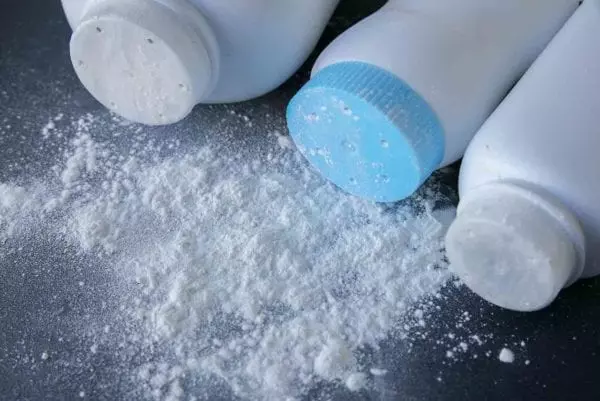
More than one hundred organizations are calling for a global ban of Johnson & Johnson’s talc-based baby powder. In May 2020, the company announced it would stop selling its talcum powder product in the United States and Canada. However, the company continues to sell the baby powder in other parts of the world. The company’s talcum powder has previously tested positive for the carcinogen asbestos.
Hundreds of Organizations Call for Talcum Powder Ban
More than 170 organizations came together calling for Johnson & Johnson to remove its talc-based baby powder from stores globally. These organizations are based in 51 different countries, representing the following fields:
- Conservation
- Educational and municipal institutions
- Environmental health and justice
- Health providers
- Human rights and consumer rights
- Labor unions
- Public health
- Women’s health
These groups are unified in their desire to protect environmental and public health.
Johnson & Johnson’s Baby Powder Recall
Talc-based baby powder sold by Johnson & Johnson has tested positive for asbestos. In fact, in October 2019, Johnson & Johnson recalled 33,000 bottles of talcum powder due to asbestos contamination.
Shortly after this recall, Johnson & Johnson decided to stop selling new talc-based products in North America. The company will let the remaining stock sell out in North America. However, it will continue selling its talc-based baby powder in other countries.
Nearly 200 organizations are calling for Johnson & Johnson to end the sale of its baby powder globally to protect consumers worldwide.
Dangers of Talcum Powder Use
Talcum powder can be easily contaminated with asbestos. This is because the two minerals, talc and asbestos, occur naturally near one another.
Asbestos can cause mesothelioma, lung cancer, ovarian cancer and other illnesses.
Many women have filed claims against Johnson & Johnson after developing asbestos-related cancer. In these talcum powder lawsuits, the women attribute their diagnoses to baby powder use. Multiple women have received multi-million dollar settlements from these lawsuits.
Asbestos in Personal Care Products
Asbestos in cosmetics is problematic as many women use cosmetics on a daily basis. No amount of asbestos exposure is safe. However, studies note long-term exposure is more likely to cause cancer.
“Asbestos is a known human carcinogen, and no amount of this toxic substance is acceptable in our everyday cosmetic products like talc-based baby powder. Since it is nearly impossible to ensure that all talc-based powder products are free of asbestos, these products must be removed from store shelves across the globe. Given the potential links between talc-based powders and ovarian cancer, halting sales of talc-based powders will benefit women’s health especially for women of color, who are disproportionately dying from ovarian cancer.”
Ami Zota, ScD, MS
Associate Professor of Environmental and Occupational Health at the George Washington University Milken School of Public Health, Black Women for Wellness Press Release
Companies Call for Global Johnson & Johnson Talcum Powder Ban
Many organizations against the sales of Johnson & Johnson’s talc-based baby powder are advocates for public health, wellness and asbestos awareness. The Asbestos Disease Awareness Organization (ADAO) and Black Women for Wellness (BWW) are two organizations standing up to Johnson & Johnson.
Asbestos Disease Awareness Organization Calls for Action
The Asbestos Disease Awareness Organization (ADAO) called for a stop to Johnson & Johnson’s global talc baby powder sales. The ADAO is dedicated to protecting individuals from the dangers of asbestos exposure.
The ADAO noted more than 200,000 people die every year from asbestos illnesses. Even so, asbestos is not fully banned in the United States.
Black Women for Wellness Speaking Out
The nonprofit group Black Women for Wellness (BWW) recently spoke about the dangers of asbestos to women worldwide. According to Executive Director Janette Robinson Flint, BWW has seen many Black women and their families suffer from reproductive and breast cancers.
Recently, Johnson & Johnson’s CEO, Alex Gorsky, issued a statement in support of racial justice and equity. Robinson Flint argues Gorsky’s statement is contradicted by Johnson & Johnson’s marketing directed to African American and Latinx women.
“Marketing of African American and Latinx women with continued sales of those same products containing toxic chemicals in international markets with majority Black & Brown women contradicts what they have said and calls into question the sincerity of their statements.”
Janette Robinson Flint
Executive Director of Black Women for Wellness, Black Women for Wellness Press Release
Johnson & Johnson’s Response to Calls for Talcum Powder Ban
Despite its recent asbestos-related recall, Johnson & Johnson continues to deny claims that its products contain asbestos. When the company announced the end of talcum powder product sales in the U.S. and Canada, it claimed the decision was spurred by a drop in sales.
According to Johnson & Johnson, the decline in sales is due to “misinformation around the safety of the product and a constant barrage of litigation advertising.”
In the same statement, Johnson & Johnson stated its upcoming plans for the product, including:
- Johnson & Johnson will sell the remaining talc-based baby powder in the U.S. and Canada until the supply runs out.
- Johnson & Johnson will continue selling cornstarch-based baby powder in North America.
- Johnson & Johnson will sell both talc-based and cornstarch-based baby powder in other countries.
Johnson & Johnson has not immediately responded to recent calls for action.




